Charles Delogne: New GSP+ will be ‘more for more’ process
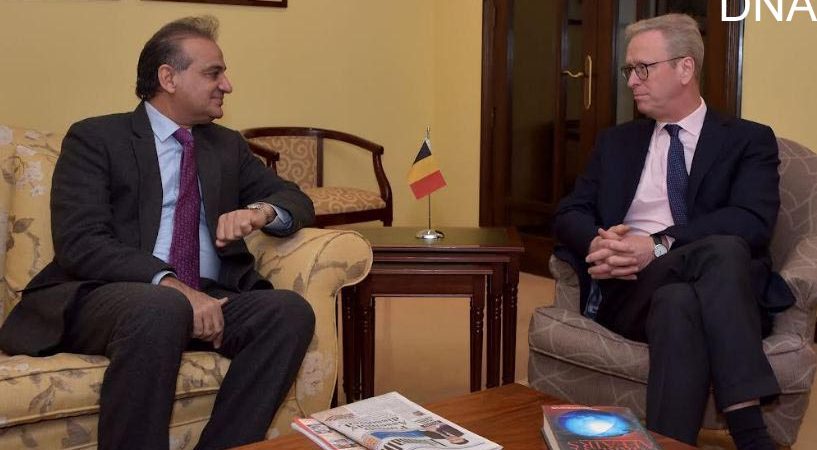
Belgium hopes that Pakistan will be one of the beneficiaries of the new GSP+ process
Ambassador of Belgium to Pakistan Charles Delogne talked to Daily Islamabad POST, Centreline and Diplomatic News Agency (DNA). The ambassador talked about bilateral as well multi-lateral relations. Here is the text of his interview.
Ansar Mahmood Bhatti
1: Let us begin with the bilateral relations, please share with us some salient features of Pakistan-Belgium ties with particular reference to trade and economic activities?
Our most complete statistics date from 2021: Belgium exported goods to Pakistan for 866 million EUR but this figure was boosted by the export of Covid-19 vaccines. Belgium imported goods from Pakistan for 457 million EUR, essentially textiles and rice.
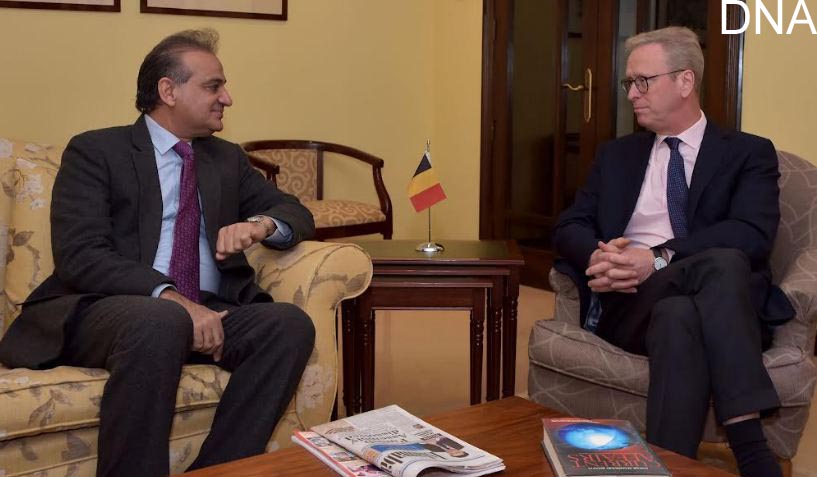
The statistics during the 9 first months of 2022 show a more balanced picture but still an increase of the overall turnover: the Belgian exports to Pakistan amounted 487 million EUR while the Belgian import from Pakistan had a value of 463 million EUR.
I do not know the impact the floods will have on our trade relation this year. In total, Belgium is the 58th supplier of Pakistan and its 61st client. For those last figures, I used the statistics of the Belgian Trade Agency. According to the Pakistani ones, Belgium is the 5th trade partner of Pakistan.
2: Since January 2014, Pakistan has GSP+ status and a general view even among the business community is that Pakistan has not been able to fully cash in on this facility because of certain internal factors. Do you think this impression holds any ground or you think Pakistan has made maximum utilization of this facility?
It is impossible to answer this question which is rather speculative. For sure, the European Union is the main trade partner of Pakistan with a overall turnover above 13 billion EUR in 2019, last year with full statistics.
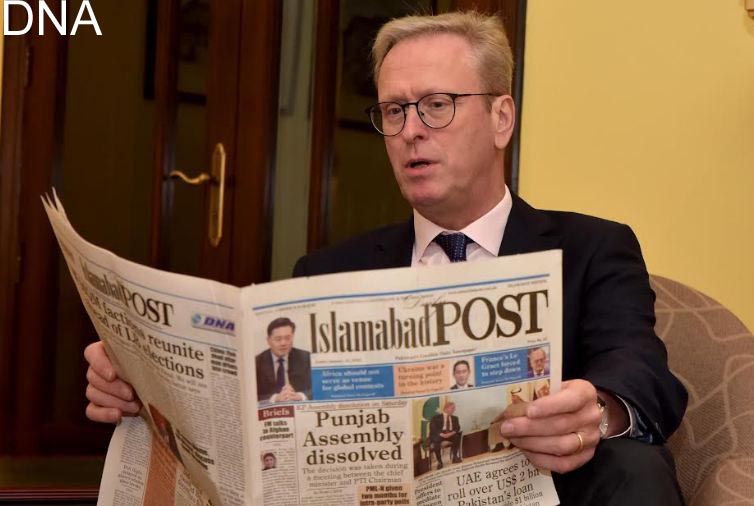
This figure includes Pakistani exports of goods to the EU (7,5 billion EUR or 30 % of the total value of the Pakistani exports), the Pakistani imports of goods from the EU (5,5 billion EUR) as well as the import of services from Pakistan. But the European Union is much more than a trade partner or a development partner for Pakistan. In 2019, both signed a Strategic Engagement Plan that identifies a lot of fields of cooperation. In 2022, many high-level meetings witnessed the intensity of the EU-Pakistan relationship.
3: To be able to benefit from GSP Plus Pakistan ratified all 27 core international conventions on human rights, labour standards, environmental protection, and good governance. Since this ratification, not much has changed on the ground in Pakistan. Do you think Pakistan may face serious challenges in December this year when the Status is going to be reviewed?
Implementation of these conventions by Pakistan is indeed of utmost importance. The discussion is going on within the European Union about a new GSP+ regulation that will normally enter into force in January 2024 and will replace the current regulation.
The big institutional change is that this new regulation must be approved by the European Parliament. This increases the political nature of the GSP+ which will be more than a mere trade agreement.
Follow-up mechanisms will be put in place and this supposes frequent political talks. To summarize, the new GSP+ regulation will be a “more for more” process and not a zero sum game. Belgium hopes that Pakistan will be one of its beneficiaries.
4: How do you see the world response towards Pakistan floods at the recently held Geneva donors’ conference? Please share with our readers the Belgian support extended to Pakistan in this regard?
The Geneva Conference went beyond the expectations of the Pakistani Government. Belgium did not announce any pledge for the reconstruction but insisted on the importance of her contribution during the humanitarian phase of the floods in order to save lives. At the most critical moments of the floods, Belgium provided 300 tents to offer a shelter to 1.800 people and a water sanitation installation.
These contributions in kind must be added to the considerable budgetary support Belgium gives to UNCERF, FAO and ICRC through the techniques of core funding and flexible funding that allow the quickest reaction of these multilateral bodies to address humanitarian crises such as the floods in Pakistan.
5: Belgium is the NATO contact country in the region. How do you see NATO’s role with reference to peace and stability in Afghanistan?
Through the framework “Partners Across the Globe”, NATO and Pakistan developed cooperations in areas of mutual interest including emerging security challenges. Political dialogue and practical cooperation with Pakistan has expanded significantly in recent years, particularly with regards to Afghanistan.
Furthermore, the NATO Science for Peace and Security Program is open to collaboration with scientists and experts from Pakistan. The key priorities of this program include various priorities such as counter-terrorism, energy security, cyber defense, etc.
As a local NATO point of contact, the Belgian Embassy in Islamabad organizes meetings between some Pakistani personalities and the NATO embassies present in Pakistan and facilitates the visits of NATO delegations to Pakistan. The mandate of the Belgian embassy comes to an end in December 2023.
6: The EU is always looking towards NATO or other military forces whenever there is a need for that. As the founding member of the EU, don’t you think the EU should have its own military alliance?
Keep in mind that some EU member states are not member of NATO and vice versa. This institutional reality explains the slow but steadily ongoing development of a European Policy of Defense. Belgium is a strong supporter thereof but, just like the other EU member states, she considers that the development of a European pillar of Defense can jeopardize neither NATO efficiency nor the Trans-Atlantic link.
As a result of this vision, the different European Defense missions that have taken place in several parts of the world continue to use NATO capacities but autonomously. There are things that the EU can do on its way such as the development of a European defense industry but interoperability with NATO remains crucial. Recently, the EU set up a revolving Peace Financial Facility that finances the EU military support to Ukraine. All these considerations show you that NATO and the EU are complementary rather than competing.
7: How do you see the Russian invasion of Ukraine? Is there any possibility for Ukraine to be admitted into the NATO and EU any time soon?
The Russian invasion of Ukraine is a violation of the UN Charter and the international law and Belgium strongly condemns it. In their narrative, the Russians claim that a Ukraine’s NATO membership would threaten their national security and that this justifies their two aggressions (in 2014 and 2022) against this country.
But let stick to the realities. First of all, NATO is a defensive alliance and not an imperial organization. Second, it is a sovereign right of a country to decide to apply to any international organization and Ukraine has constantly been viewing the Euro-Atlantic integration as its strategic goal since its independence in 1991.
EU and a NATO adhesions are based on the merits of the candidate country and, as far as NATO is concerned and before the war in Ukraine started, there was no unanimity among the Allied countries on the membership of this country.
This clearly illustrates the fake narrative Russia uses to hide its own imperialist and colonial project. The future will tell us if the Russian war is a game changer for Ukraine’s Euro-Atlantic aspirations but, before that, this war must stop.
Related News
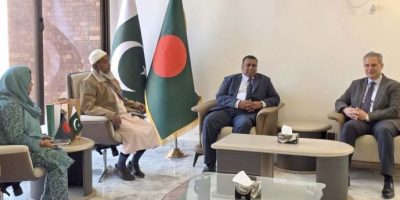
Jordan Ambassador greets Bangladesh counterpart
ISLAMABAD, 20 FEB (DNA) — The Jordanian Ambassador to Pakistan, Dr. Maen Khreasat, met withRead More
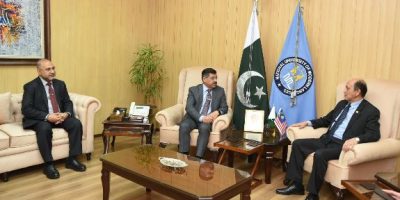
NUML hosts Malaysian envoy for academic talk
ISLAMABAD, FEB 20 /DNA/ – Ambassador Dato’ Mohammad Azhar Mazlan, High Commissioner of Malaysia toRead More


Comments are Closed